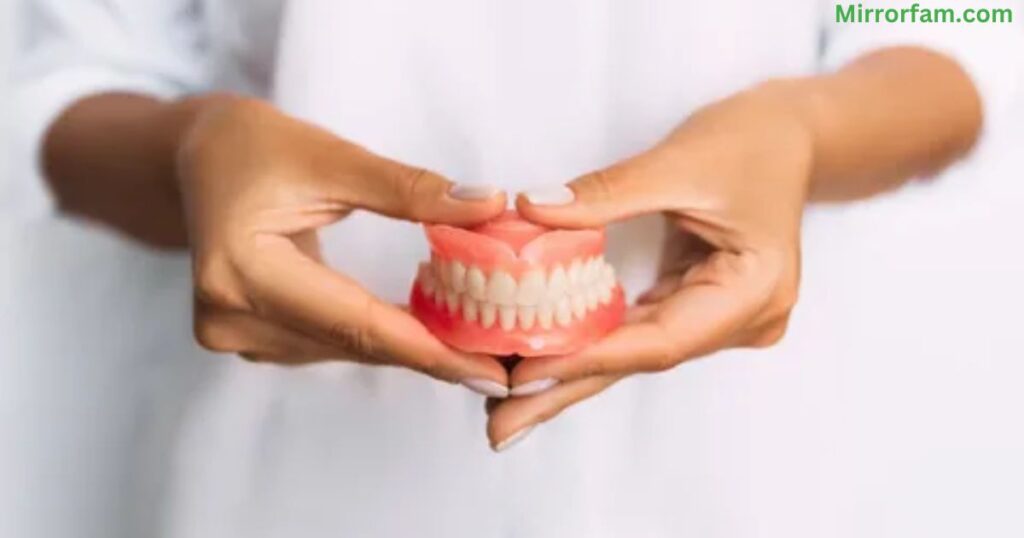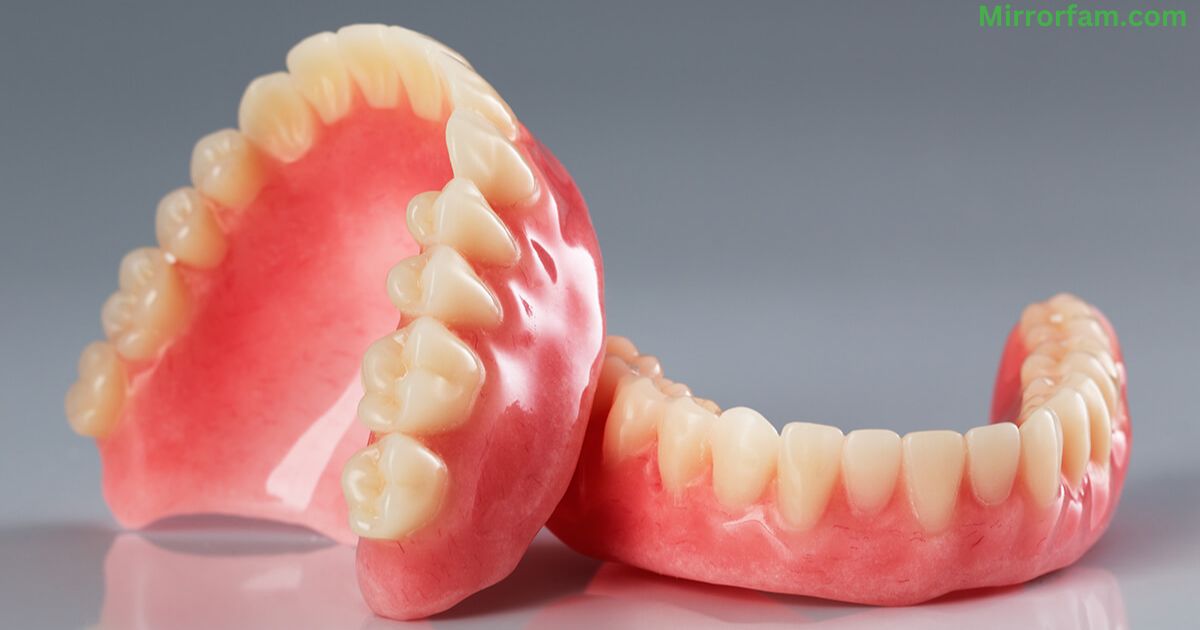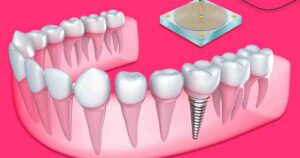Dentures are removable false teeth made of plastic or metal structures used to replace missing teeth. They sit over the gums to replace missing teeth and surrounding tissues. Dentures help restore chewing ability and speech. They also support lips and cheeks.
How much are dentures? With missing teeth, you may wonder about cost of getting dentures to restore your smile. Dentures can range widely in price depending on the type from a few hundred dollars to several thousand dollars. We’ll look at what impacts the cost of dentures.
Getting dentures made and inserted is an important health decision when someone has lost all or multiple permanent teeth. The price varies based on the type of dentures chosen – full or partial, as well as the materials they’re made from. Dentures require ongoing dental care and may need to be replaced every 5-10 years for proper fit and function.
Denture Costs Vary Greatly
Dentures can range widely in price from a few hundred dollars to several thousand dollars. Many factors impact the total cost of dentures, including the type of dentures chosen, the materials used, and any additional procedures needed. It pays to understand what makes up the total bill for dentures.
Full dentures tend to cost more than partial dentures. The reason is that full dentures require extracting any remaining teeth and custom-fitting the dentures to the entire upper and/or lower dental arches. Partial dentures only replace one arch or just several missing teeth. More labor and materials go into full dentures.
Factors Impacting Denture Prices

The cost of dentures depends on whether you get full or partial dentures, the materials chosen, and any additional dental procedures required. Full dentures tend to cost $800-$3,000 per arch, while partial dentures usually range from $500-$1,800 per arch. The total expense can rise much higher with added procedures.
Some key factors that can increase the final bill for dentures include needing extractions prior to impressions, requiring multiple fittings to get the right shape and fit, choosing upgraded denture materials, needing revisions or relines within the first year, needing dental implants for securing the dentures, and adding dental insurance processing.
| Type | Cost Range |
| Full Dentures | $800 – $3,000 per arch |
| Partial Dentures | $500 – $1,800 per arch |
Choosing Full or Partial Dentures
Getting dentures is a big decision that requires considering your budget, existing oral health, and lifestyle needs. The first choice is whether full or partial dentures serve you better. Full dentures replace all missing upper and/or lower teeth, while partials only replace several missing teeth.
Full dentures usually provide a more complete smile restoration for those missing all or most of their teeth. But they require surgically extracting any remaining teeth first. So there is an adjustment period. Partial dentures preserve any healthy remaining teeth, making them less invasive. But they may not restore one’s smile as completely. Discuss your particular needs with your dentist when selecting which type works for your mouth and budget.
Denture Materials Affect Expense
Dentures consist of a pink plastic base fitted with replacement teeth. The materials significantly impact the cost. Basic standard dentures offer a budget-friendly option using an economical acrylic base with plastic teeth. Premium dentures use higher-grade acrylics for the gums and porcelain for the teeth to closely mimic natural gums and teeth in both color and texture.
You’ll also find mid-range combination options, with a high-quality acrylic gum base but plastic replacement teeth. The material options vary quite a bit, so do price checks when looking into dentures to see what matches your oral health needs and budget best. Just know that more durable, stain-resistant, natural-looking materials come at a higher price.
Insurance Can Reduce Out-of-Pocket
One way to reduce the cost of dentures is to utilize dental insurance if available. Many dental insurance plans provide some level of coverage for dentures, whether applying the benefit to the initial denture placement itself or follow-up adjustments/relines in the first year after placement. The amount covered depends on your particular dental insurance plan terms.
For example, some plans cover 50% of total denture expenses per arch up to an annual maximum limit. So while you still pay a good portion out-of-pocket, having insurance can reduce your upfront costs substantially. Just be sure to verify your possible denture coverage in detail beforehand so you know what discounts to expect.
Ongoing Dental Care With Dentures
Getting dentures is not a one-time cost. Proper oral health and denture care requires regular dental follow-up visits and possible denture repairs, relines, or replacements down the road. Expect to visit your dentist several times the first year for needed adjustments to ensure proper fit as your gums heal. Relines or rebases may be needed to improve fit.
Over a long term spanning 5-10 years, dentures exhibit wear and tear or may no longer fit properly due to bone and gum shrinking. So budgeting for a replacement every several years ensures your dentures maintain function. Going in expecting regular dental care costs helps avoid surprise expenses.
Relining and Replacing Dentures Over Time
Dentures typically need replacement every 5-10 years. The reason is that the supporting gum and bone structures change over time leading to decreased stability and loosening. Natural shrinking of the gums means even well-fitted dentures no longer rest correctly against tissue. A denture reline or rebase helps correct this fit.
With a reline, new denture material gets added to the existing base to better conform to current gum contours. A rebase replaces the entire denture base for gums that have changed too much. While cheaper than new dentures, relines and rebases still add a few hundred dollars in additional costs during your years of wear.
Comparing Dentist vs Dental Clinic Costs
An important way to potentially save money on dentures is to comparison shop between private practice dentists versus large group dental clinics. Certain dental clinics are able to offer denture pricing noticeably lower than a traditional dentist office. The savings comes from in-house dental labs and higher patient volumes.
However, you still want qualified dentists overseeing your care. Verify credentials, experience, and patient reviews regardless of choosing a solo practicing dentist or large clinic group. Consider both cost savings and dentist expertise when deciding where to have dentures made to get both affordability and quality.
Financing Options For Dentures Procedures

The total expense of dentures may seem prohibitive upfront. But patients today have many options for spreading out payments over time. Most dentist offices offer third-party healthcare financing programs to qualified applicants allowing monthly payments for dental treatments. Federal and private loans also assist with major dental work.
Payment plans allow you to proceed with needed dentures even on a tight budget. Just be sure to understand all the terms like interest rates beforehand so monthly costs do not grow too high. Having a plan to pay off the balance steadily prevents finances from standing in the way of your oral health.
Negotiating Dentist Fees For Dentures
If struggling with the total quoted fees for dentures, do not hesitate to inquire if any discounts or payment arrangements may apply. Many dentists aim to help patients afford quality dental treatments even when uninsured through reasonable negotiated fees or in-house savings plans.
Being upfront about budget limitations allows you and your dentist to openly discuss ways to make dentures fit within your financial means. From adjusting materials selection to extended payment installments to discounted rates, many options exist. Being proactive leads to the best chance at agreed denture expenses.
FAQs
How much do the best dentures cost?
The best quality dentures with premium materials and highly skilled dental work can cost $3,000-$4,500 per arch.
How many teeth do you need for dentures?
You need to have lost all or most of your natural teeth, typically leaving only 0 to 4 remaining teeth, to qualify for conventional full dentures.
How much does it cost for a full set of dentures?
A full set of dentures, replacing all upper and lower teeth, usually costs $3,000-$20,000 or more depending on the materials used and dental procedures required.
Conclusion
Getting dentures is a major investment that can cost anywhere from a few hundred to several thousand dollars. Many factors impact the final price tag, including full versus partial dentures, materials chosen, insurance coverage, and additional dental procedures required. Being informed on these cost factors helps you budget properly and choose the best denture solution for your needs.
Dentures require ongoing dental care including relines, rebases, repairs, and eventual replacement every 5-10 years. Proper cleaning and checkups preserve denture function. Financing options make this long-term investment in oral health more affordable. Compare provider costs and financing plans to negotiate denture expenses within budget.











